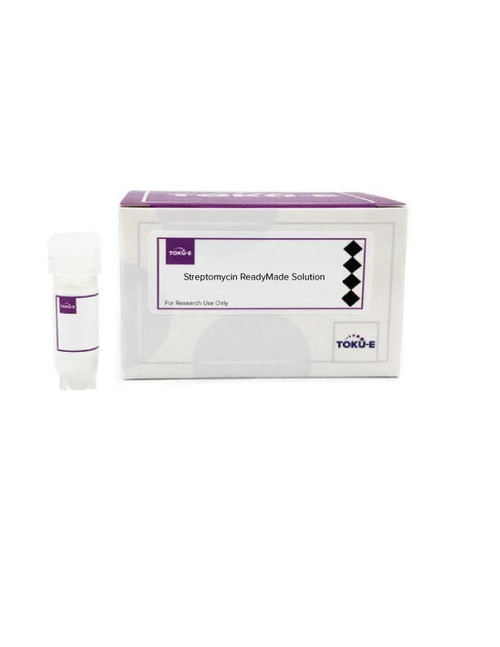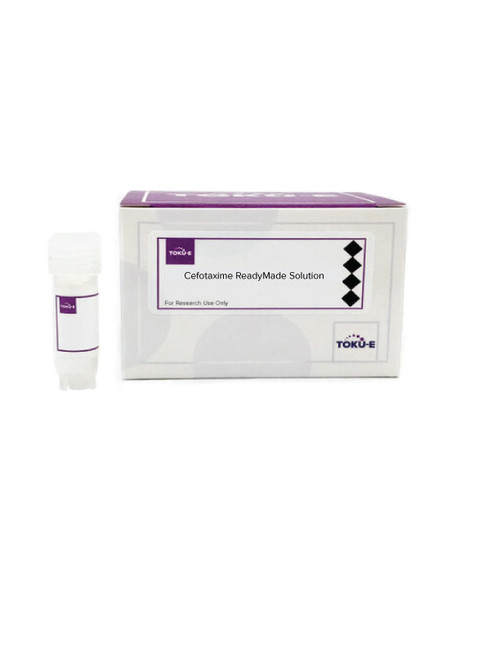Novobiocin ReadyMadeTM solution is provided as a sterile-filtered solution of Novobiocin Sodium formulated in water at a concentration of 100 mg/ml. It has been filter-sterilized using a 0.22 μm filter.
Novobiocin is an aminocoumarin antibiotic that prevents cell division. Novobiocin was first reported in the mid-1950s, then called streptonivicin.
We also offer:
- Novobiocin Sodium (N014)
- Novobiocin Sodium, Granulized (N064)
- Dihydronovobiocin (D101)
- Novobiocic Acid (N071)
| Mechanism of Action | Aminocoumarin antibiotics target DNA gyrase, an enzyme which relieves strain as DNA unwinds during replication and transcription. It also inhibits mammalian topoisomerase, both are ATP-dependent enzymes involved with cell division. |
| Spectrum | Novobiocin Sodium targets primarily Gram-positive organisms and is commonly used to differentiate between coagulase-negative (all but S. aureus and a few others) Staphylococcus species, with S. saprophyticus being resistant to novobiocin in culture. |
| Microbiology Applications | Novobiocin Sodium is commonly used in clinical in vitro microbiological antimicrobial susceptibility tests (panels, discs, and MIC strips) against Gram-positive microbial isolates. Medical microbiologists use AST results to recommend antibiotic treatment options for infected patients. Representative MIC values include:
Staphylococcus aureus 0.25 µg/mL Novobiocin is a component of Muller-Kauffmann Tetrathionate-Novobiocin Broth (MkTTn) broth that can be used to selectively isolate Salmonella species from food samples for food testing applications, with the Novobiocin to improve inhibition of Proteus species. |
| Eukaryotic Cell Culture Applications |
Novobiocin can be used to treat Mycoplasma contamination. |
| Cancer Applications | Novobiocin can be used in cancer reearch as it has anti-cancer effects via heat shock protein (Hsp90) inhibition.
Novobiocin caused a decrease in the expression of SMYD3 and dose dependently inhibited the proliferation and migration of MDA-MB-231 human breast cancer cells (Luo et al, 2010). |
| Molecular Formula | C31H35N2NaO11 |
| References | Benjama A and Charkaoui B (1997) Control of Bacillus contamination date palm tissue in micro-propagation using antibiotics. In: Cassells AC (eds) Pathogen and microbial contamination management in micro-propagation. Developments in Plant Pathology. Vol 12. Springer, Dordrecht. Kluwer academic publishers.
Brown PO and Peebles CL (1978) energy coupling in DNA gyrase and the mechanism of action of Novobiocin. PNAS 75(2):4838-04842 Lu XG, Zou JN, Wang SZ, Zhang TC, Xi T(2020) Novobiocin decreases SMYD3 expression and inhibits the migration of MDA-MB-231 human breast cancer cells 62(2):194-199 PMID 20039369 |








